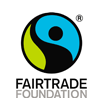Some of the candidates are running on the very expectation that they won’t ever have to take up their seats. Whilst others, running on an explicitly ‘Remain’ platform, will be hoping that they get to serve out a full five-year term. Given the possibility that MEPs will serve as our representatives for a period of time (whether that’s five months or five years), this is a short reflection on what they might be able to achieve as Fairtrade advocates and at the end we list the essential questions you should ask your candidates.
The European Parliament’s Fair Trade Working Group
To start with, there is the Brussels equivalent of our UK Fairtrade All-Party Parliamentary Group. The European Parliament’s Working Group on Fair Trade was founded and chaired by Yorkshire MEP Linda McAvan (who is not seeking re-election), who has also been Chair of the European Parliament’s Committee on Development.
The Fair Trade Working Group has been instrumental in building awareness and support for Fair Trade across Europe and has been working at the highest level – organising a Fair Trade breakfast every year with participation from key Commissioners and initiating a Fair Trade Towns Award across the European Union. One of the most significant victories steered through by Linda and other Fair Trade supporters in the European Parliament was on public procurement rules. In 2014, it was agreed that public authorities across Europe could make a deliberate choice for Fair Trade products alongside other sustainability considerations, and that robust certification schemes (like Fairtrade!) could be used to demonstrate compliance with sustainability requirements in tender documents.
We’d encourage any new MEPs to get involved in the Fair Trade Working Group.
MEPs vote on the content of trade deals
At a policy level, MEPs will have the opportunity through Committee work to influence policy and legislation. The issues dealt with at a European level are primarily those that cut across borders and require co-ordinated action, whether that’s on development, trade or agriculture. Take trade policy for example. MEPs who sit on the Trade Policy Committee have significant input into any trade deals that the EU does with other countries, including developing countries. In fact, all MEPs are able to express their views by voting on an initial ‘mandate’ and on the text of final trade deals (a power that has not yet been promised to UK MPs).
As a recent example, MEPs refused to endorse opening trade talks between the EU and the United States, citing concerns about the US President’s trade and environmental policies. It is our hope that any UK MEPs who are elected and end up sitting on these committees or voting on these issues in plenary, will play an active role and speak up for the globally agreed UN Sustainable Development Goals (SDGs) to guide all aspects of decision-making.
Directive to clamp down on dodgy trading practices
One concrete example of progress on a Fair Trade agenda from the last few years is agreement earlier this year on the Unfair Trading Practices (UTP) Directive. This Directive, which has to be transposed into law across all EU member states, aims to clamp down on dodgy purchasing practices that can disadvantage producers in the supply chain, often those in developing countries. From the last-minute cancellation of orders, to late payments, the Directive lists a range of now banned practices, and also enables NGOs and trade unions to bring complaints on behalf of suppliers. We don’t yet know whether the UK will need to implement this Directive but we argue that it should, and in any case, any UK business purchasing from an EU supplier will be covered in any event. You can read more about this Directive in this Traidcraft Exchange blog.
Current campaign for human rights due diligence
Looking ahead, one European-wide campaign which is likely to grow in strength, is the campaign for mandatory ‘Human Rights Due Diligence’ (HRDD). This campaign, aimed at promoting responsible business, is calling for a change in the law that would require companies to undertake HRDD. This is essentially a process by which they have to show that steps have been taken to identify, prevent, mitigate and account for any negative human rights and environmental impacts in their supply chains. This could include steps taken to prevent and address child labour in the cocoa sector.
This could of course be done country by country, and there is nothing to stop the UK bringing forward its own law – indeed, the French have already done so. But there is value in a coordinated approach across Europe given that so many companies operate across borders as multi-nationals – so a level playing field makes sense. MEPs have already expressed their support for a European HRDD law and the European Commission is now actively looking at it – so this is one to watch, and a campaign we are urging new MEPs to support.
It is our hope that anyone who does end up taking a seat in the European Parliament, whether for a short or long period of time, will build on the strong record of past Fairtrade advocates who have been able to bring about real change in support of sustainable development.
Essential Qs to ask your candidates
If elected:
- What will you do to champion Fair Trade with developing countries?
- Will you join the Fair Trade Working Group in the European Parliament?
- Will you speak up for the concerns of developing countries in the EU’s trade policy?
- Will you make sure that the EU’s trade and development policies support the UN Sustainable Development Goals?
- Will you support proposals for responsible business and fairer supply chains, including through mandatory Human Rights Due Diligence?
- And if the candidate isn’t planning to take up a seat in the European Parliament if elected, perhaps you could ask them what ideas they have for promoting Fairtrade and the Sustainable Development Goals locally and nationally.




